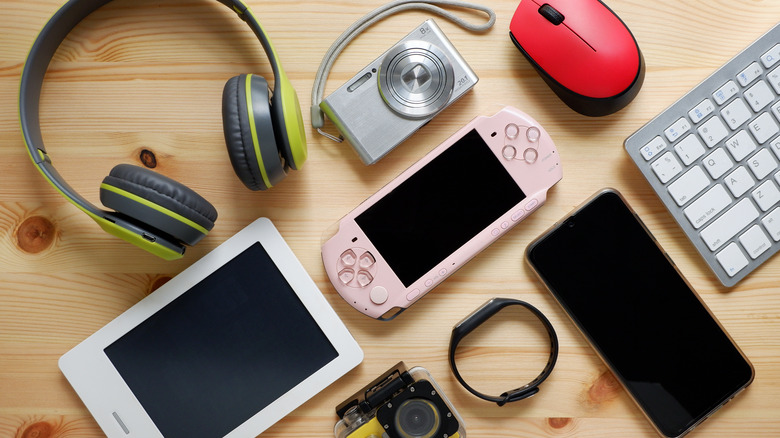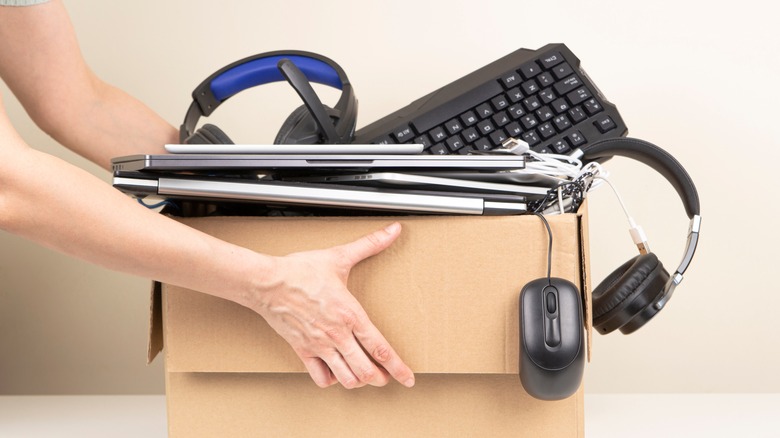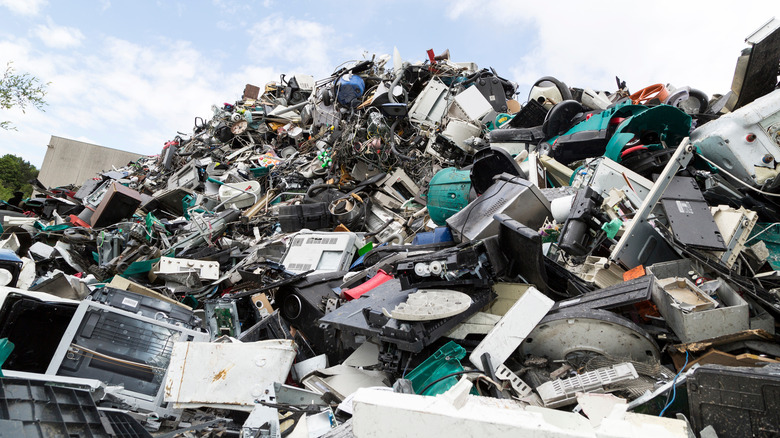A Surprising Number Of People We Polled Don't Recycle Old Electronics - Here's Why They Should
Electronic waste, more commonly called e-waste, is a growing problem worldwide. The statistics showing the amount of junk produced every year is mind-boggling. The BBC reports these unwanted electronics generated 57 million tons of waste in 2021 alone and continue to grow by 2 million tons per year. The good thing is that most people in the U.S. — 80%, to be exact — choose to recycle their old electronics such as laptops, e-readers, cameras, smartphones, and TVs by taking them to recycling centers, donating them, or giving them away to friends and family.
On the flip side, however, it came as a surprise that the remaining 20% of people we polled did not use environmentally-friendly practices to dispose of their electronics. When it comes to protecting your health and the environment, recycling offers many benefits: it reduces carbon emissions, prevents dangerous toxins from polluting the Earth, and is a key part of forming a circular economy. If you don't do it already, here are some reasons why recycling your old devices is a great idea.
It saves natural resources for the future
Not only does manufacturing electronics deplete natural resources from the Earth, but it could also lead to a shortage of several precious metals within the next 100 or so years. It is impossible to make electronic devices without key resources like gold, palladium, iron, oil, copper, and platinum (via EPA), and this puts a huge environmental strain on Earth's limited resources. Despite this, the majority of electronic devices end up in landfills, not recycling centers.
According to scientists, this means that continuing to use limited resources at this rate is simply not sustainable, and if trends continue, there will not be enough for future generations. Already, the United Nations estimates that up to 7% of gold in the world could be sitting inside e-waste and not in its natural environment. But, there is a way to reverse this. The Royal Chemistry Society said to the BBC that people should make an effort to mine waste instead of digging up new resources from the ground. Recycling your unwanted electronics rather than throwing them in the garbage helps ensure they'll be taken apart and put to new uses rather than left to rot in landfills.
Dumping e-waste is hazardous
Electronic devices are known to contain heavy metals and toxic materials that can harm your health if not properly disposed of. According to scientific research, e-waste is a factor in environmental and health problems globally. The EPA reports that electronics are typically made with heavy metals such as lead, mercury, arsenic, and cadmium. These toxic materials can lead to diseases like cancer and can cause neurological damage and miscarriages in women. Research is ongoing in this area, and many studies have been published.
Recently, a group of scientists from Australia published findings that showed some of the adverse effects of these chemicals, including damage to the lungs, thyroid, and behavioral changes among children and adults (via NIH). E-waste also hurts the environment. Discarded electronics contain toxins like lead that can leach into the soil and water tables below. Burning these old gadgets is a problem, too. When you set these devices on fire, the smoke that results can cause various heart and respiratory diseases. Recycling old gadgets helps ensure they're processed in a way that helps protect both human health and the environment.


